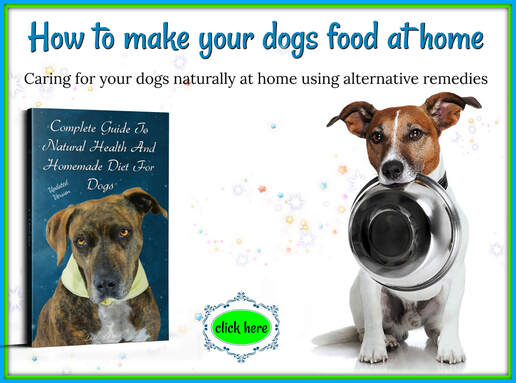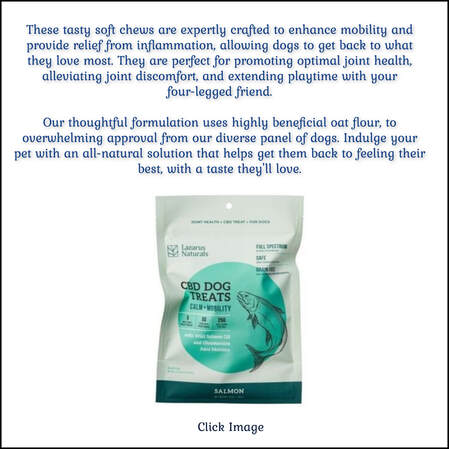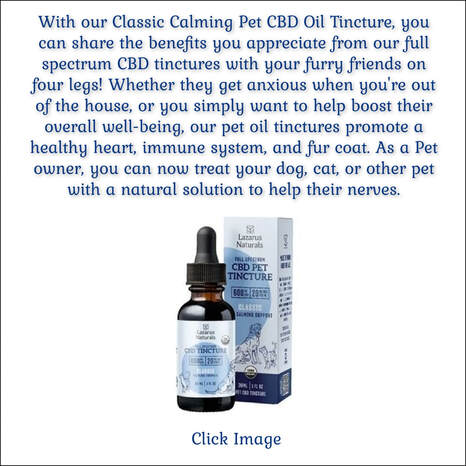
By Dr Karen Becker
Carnivores, omnivores and herbivores.
Chances are, the pets you care for fall into one of these three categories. And each type of pet has distinct nutritional needs.
It’s important to remember that no matter what your personal beliefs about food, you can’t change the DNA of your pets. They were designed by nature to consume certain types of food.
The Logic of Nature
Rabbits and horses are herbivores, or vegetarians.
They have very large front teeth (called incisors) to grasp vegetation. Their jaws shift from side to side to grind grasses and fibrous plant material on their large, flat molars. The long gastrointestinal (GI) tracts of herbivores are designed to ferment these foodstuffs into usable nutrition. Omnivores, such as bearded dragons, for example, are designed to chew and process both meat protein (insects) and plant material. Dogs, cats and snakes are carnivores, with sharp, interlocking teeth designed to grasp prey.
Carnivores, omnivores and herbivores.
Chances are, the pets you care for fall into one of these three categories. And each type of pet has distinct nutritional needs.
It’s important to remember that no matter what your personal beliefs about food, you can’t change the DNA of your pets. They were designed by nature to consume certain types of food.
The Logic of Nature
Rabbits and horses are herbivores, or vegetarians.
They have very large front teeth (called incisors) to grasp vegetation. Their jaws shift from side to side to grind grasses and fibrous plant material on their large, flat molars. The long gastrointestinal (GI) tracts of herbivores are designed to ferment these foodstuffs into usable nutrition. Omnivores, such as bearded dragons, for example, are designed to chew and process both meat protein (insects) and plant material. Dogs, cats and snakes are carnivores, with sharp, interlocking teeth designed to grasp prey.
|
Cats and snakes are obligate carnivores, which means they must consume a meat diet to maintain health, whereas dogs are scavenging carnivores, who, in addition to a meat based diet, can consume other types of foods without dire consequences. By nature’s design, rabbits and horses were never intended to consume meat. Dogs and cats were not designed to eat or digest grains.
|
So, as you would expect, when you feed your dog and cat companions foods they were not designed to eat, you’re asking for trouble.
But before we get to exactly what happens when your companions consume biologically inappropriate foods, you must understand two key points to overall health for people and animals alike:
But before we get to exactly what happens when your companions consume biologically inappropriate foods, you must understand two key points to overall health for people and animals alike:
- The gastrointestinal system must be healthy to avoid disease.
- The GI tract is the body’s number one barrier to disease and disease processes.
- How Your Pet’s Digestive System Works
- The GI tract has three main functions:
- digestion
- absorption
- prevention of toxins from entering your pet’s body
Your pet’s digestive tract is essentially an unsterile tube from the mouth to the anus. It is the largest immune reactive surface in your pet’s body, and it is exposed daily to pathogens, viruses, bacteria and food particles. It’s important to realize that what you feed to your pet can dramatically alter the defense mechanisms of the gut mucosa (the lining of the GI tract).
Your pet’s diet contributes to either the production or elimination of inflammatory responses. What you feed your animal also either increases or decreases gut permeability, thereby altering nutrient absorption and overall health. Intestinal permeability, or the ability of the digestive tract to selectively absorb and prevent certain substances from entering your pet’s body, is critical for your pet’s health.
When your dog or cat’s GI tract is healthy, it allows for the absorption of vitamins, minerals and amino acids, while at the same time preventing entry of disease-causing substances. Increased intestinal permeability (or microscopic holes) of the gut lining allows for the abnormal absorption of certain toxic substances such as improperly-digested food particles, bacteria, viruses and metabolic by-products which your pet is exposed to daily.
Keeping Your Pet’s Gut Bacteria in Balance
All mammals have “good” bacteria in their GI tracts. Good bacteria are the billions of healthy bacteria that naturally occur in the small and large intestines.
Your pet’s diet contributes to either the production or elimination of inflammatory responses. What you feed your animal also either increases or decreases gut permeability, thereby altering nutrient absorption and overall health. Intestinal permeability, or the ability of the digestive tract to selectively absorb and prevent certain substances from entering your pet’s body, is critical for your pet’s health.
When your dog or cat’s GI tract is healthy, it allows for the absorption of vitamins, minerals and amino acids, while at the same time preventing entry of disease-causing substances. Increased intestinal permeability (or microscopic holes) of the gut lining allows for the abnormal absorption of certain toxic substances such as improperly-digested food particles, bacteria, viruses and metabolic by-products which your pet is exposed to daily.
Keeping Your Pet’s Gut Bacteria in Balance
All mammals have “good” bacteria in their GI tracts. Good bacteria are the billions of healthy bacteria that naturally occur in the small and large intestines.
When GI bacteria are the correct type and in balance, good things happen, such as:
When your pet’s ratio of good-to-bad GI bacteria is in the healthy range, it is known as symbiosis (living in balance). The opposite of symbiosis is dysbiosis. This is a condition of the GI tract in which the bad bugs have overrun the good ones.
There are two things you should keep in mind about dysbiosis:
You’ll want to protect your pet against it, because the more permeable the intestinal wall, the less able your pet’s GI tract will be to allow healthy bacteria and nutrients in and keep the disease-causing bacteria out. A healthy GI tract is selective about what is absorbed. When your dog or cat is healthy, nutrients are absorbed and everything else is filtered out. It’s estimated the number of bacteria in your pet’s bowel outnumbers the cells in its body! And scientists have known for decades that the mammalian gut is an ecosystem teeming with about 1,000 different species of bacteria. The goal is to keep the good bacteria in charge of all intestinal operations.
- vitamins are made
- vegetable fiber is fermented
- harmful bacteria are inhibited
- toxins are broken down
When your pet’s ratio of good-to-bad GI bacteria is in the healthy range, it is known as symbiosis (living in balance). The opposite of symbiosis is dysbiosis. This is a condition of the GI tract in which the bad bugs have overrun the good ones.
There are two things you should keep in mind about dysbiosis:
You’ll want to protect your pet against it, because the more permeable the intestinal wall, the less able your pet’s GI tract will be to allow healthy bacteria and nutrients in and keep the disease-causing bacteria out. A healthy GI tract is selective about what is absorbed. When your dog or cat is healthy, nutrients are absorbed and everything else is filtered out. It’s estimated the number of bacteria in your pet’s bowel outnumbers the cells in its body! And scientists have known for decades that the mammalian gut is an ecosystem teeming with about 1,000 different species of bacteria. The goal is to keep the good bacteria in charge of all intestinal operations.
What Happens if My Pet’s Gut Bacteria Gets Out of Balance?
Immune reactions provoked by an imbalance in intestinal bacteria can seriously compromise your pet’s health. Inflammatory conditions and several types of arthritis have been linked to abnormal GI responses in both people and pets. Intestinal permeability is increased in a wide range of diseases. When excessive amounts of antigens (small reactive proteins) are absorbed, all sorts of systemic reactions can occur. An overgrowth of bad intestinal bacteria can contain proteins that your pet’s immune system may mistake for healthy proteins, sparking an abnormal immune response.
This inflammatory cascade can create a number of symptoms and degenerative changes in your pet’s body.
In people, the link between dysbiosis and atopic dermatitis, chronic pancreatitis, inflammatory bowel disease (IBD) and rheumatoid arthritis has been established.
Can any of these conditions develop in your pet? Yes -- all of them.
Immune reactions provoked by an imbalance in intestinal bacteria can seriously compromise your pet’s health. Inflammatory conditions and several types of arthritis have been linked to abnormal GI responses in both people and pets. Intestinal permeability is increased in a wide range of diseases. When excessive amounts of antigens (small reactive proteins) are absorbed, all sorts of systemic reactions can occur. An overgrowth of bad intestinal bacteria can contain proteins that your pet’s immune system may mistake for healthy proteins, sparking an abnormal immune response.
This inflammatory cascade can create a number of symptoms and degenerative changes in your pet’s body.
In people, the link between dysbiosis and atopic dermatitis, chronic pancreatitis, inflammatory bowel disease (IBD) and rheumatoid arthritis has been established.
Can any of these conditions develop in your pet? Yes -- all of them.
How Does Bacteria Get Out of Whack in the First Place?
Improper Diet
When you feed your pet an improper diet consisting of foods that are reactive to the gut, it causes increased permeability and negative physiologic responses. Abnormal gut fermentation of excessive amounts of grains (complex carbohydrates) can cause an overgrowth of yeast and unfriendly bacteria. This process also has an adverse effect on vitamin absorption, including the B vitamins, zinc and magnesium. Foods that are too high in insoluble fiber (fillers such as cellulose and beat pulp) can also cause a physiologic barrier to nutrient absorption by inhibiting nutrients from coming in contact with the mucosal surface. The end result for your pet is malabsorption and maldigestion.What’s your clue that your dog or cat may not be able to digest or absorb the diet you’re feeding?
Gas, belching, vomiting and poor stool quality.
Antibiotics
It’s vital to understand that antibiotics do not discriminate in the type of bacteria they destroy. They kill both the healthy and unhealthy bacteria. And, by decimating the good bacteria, you increase your pet’s risk of subsequent intestinal infection and yeast overgrowth. Every time your pet is placed on antibiotics I strongly recommend you use a high quality probiotic, which replenishes the beneficial bacteria the antibiotic destroys. I also recommend you ask your vet to perform a culture and sensitivity test prior to guessing at which antibiotic will be effective for treating your pet’s infection, unless the infection is life threatening. One of the reasons animals are becoming microbially resistant to many of the antibiotics on the market is because vets take the “here, try this one” approach to prescribing, which is the recipe for creation of a dangerous superbug.
Improper Diet
When you feed your pet an improper diet consisting of foods that are reactive to the gut, it causes increased permeability and negative physiologic responses. Abnormal gut fermentation of excessive amounts of grains (complex carbohydrates) can cause an overgrowth of yeast and unfriendly bacteria. This process also has an adverse effect on vitamin absorption, including the B vitamins, zinc and magnesium. Foods that are too high in insoluble fiber (fillers such as cellulose and beat pulp) can also cause a physiologic barrier to nutrient absorption by inhibiting nutrients from coming in contact with the mucosal surface. The end result for your pet is malabsorption and maldigestion.What’s your clue that your dog or cat may not be able to digest or absorb the diet you’re feeding?
Gas, belching, vomiting and poor stool quality.
Antibiotics
It’s vital to understand that antibiotics do not discriminate in the type of bacteria they destroy. They kill both the healthy and unhealthy bacteria. And, by decimating the good bacteria, you increase your pet’s risk of subsequent intestinal infection and yeast overgrowth. Every time your pet is placed on antibiotics I strongly recommend you use a high quality probiotic, which replenishes the beneficial bacteria the antibiotic destroys. I also recommend you ask your vet to perform a culture and sensitivity test prior to guessing at which antibiotic will be effective for treating your pet’s infection, unless the infection is life threatening. One of the reasons animals are becoming microbially resistant to many of the antibiotics on the market is because vets take the “here, try this one” approach to prescribing, which is the recipe for creation of a dangerous superbug.
Parasites
Many parasites colonize the absorptive surface of your dog or cat’s small intestine, causing problems with nutrient absorption. Parasites also use the nutrition intended for your pet.
Some parasitic infections cause an inflammatory response in the intestine which can result in increased permeability and susceptibility to other diseases.
Deworming
Routine deworming of your pet (most monthly flea preventatives also contain a dewormer) can cause disruption of the normal bacterial environment. Parasites are always attracted to the weakest of the species. The likelihood your pet will develop a parasitic infection is directly related to how healthy he or she is. When an animal is weak (from excessive drug use, poor diet or genetic factors), parasites are more likely to gain a foothold. If you’re deworming your pet on a regular basis (for example, monthly), there’s a good chance the dewormer is not even effectively treating the parasites your pet has.
I recommend you have your pet’s stool checked every six months, and if parasites are present, deworm for the specific parasite your pet has acquired. Each category of parasites requires a different type of dewormer. Giving one type of dewormer monthly without knowing if it’s needed or effective is not the best medicine for your pet.
Many parasites colonize the absorptive surface of your dog or cat’s small intestine, causing problems with nutrient absorption. Parasites also use the nutrition intended for your pet.
Some parasitic infections cause an inflammatory response in the intestine which can result in increased permeability and susceptibility to other diseases.
Deworming
Routine deworming of your pet (most monthly flea preventatives also contain a dewormer) can cause disruption of the normal bacterial environment. Parasites are always attracted to the weakest of the species. The likelihood your pet will develop a parasitic infection is directly related to how healthy he or she is. When an animal is weak (from excessive drug use, poor diet or genetic factors), parasites are more likely to gain a foothold. If you’re deworming your pet on a regular basis (for example, monthly), there’s a good chance the dewormer is not even effectively treating the parasites your pet has.
I recommend you have your pet’s stool checked every six months, and if parasites are present, deworm for the specific parasite your pet has acquired. Each category of parasites requires a different type of dewormer. Giving one type of dewormer monthly without knowing if it’s needed or effective is not the best medicine for your pet.
For all natural deworming, click here.
Steroids
Steroid medications are serious business for animals. They inhibit several normal GI processes and also suppress the immune system, allowing opportunistic disease-causing pathogens to colonize.
Vets often use a different term for steroids, such as an “anti-inflammatory” shot or pill. I recommend you ask that your pet’s records to be marked with the words, “No steroids without owner’s consent” -- or your vet could prescribe them without your knowledge.
Although there are rare life-threatening diseases for which treatment with steroids is sometimes warranted, the majority of steroids prescribed in veterinary medicine are for non-life threatening issues. If your dog or cat is itching, or is achy, you might receive a steroid medication to treat this minor condition. This is an unacceptable practice to me.
How to Get Your Pet’s Intestinal Bacteria Back in Balance
Good bacteria, like acidophilus and bifidus, should be replaced when destroyed by any of the factors mentioned above. Good bacteria not only prevent an overgrowth of bad bacteria, they keep your pet’s intestinal mucosal lining healthy. When the intestinal lining is unhealthy, it becomes more permeable to pathogens. As I noted above, some side effects of dysbiosis are obvious, like gas, bloating and diarrhea. But effects can be quite serious and as diverse as immune dysfunction, autoimmune disease, food allergies, behavioral disorders, joint pain and nutritional deficiencies. If your pet is suffering from any of the above symptoms and you have not tried a probiotic, please do it now. You might quite literally save the life of your four-legged companion.
Steroid medications are serious business for animals. They inhibit several normal GI processes and also suppress the immune system, allowing opportunistic disease-causing pathogens to colonize.
Vets often use a different term for steroids, such as an “anti-inflammatory” shot or pill. I recommend you ask that your pet’s records to be marked with the words, “No steroids without owner’s consent” -- or your vet could prescribe them without your knowledge.
Although there are rare life-threatening diseases for which treatment with steroids is sometimes warranted, the majority of steroids prescribed in veterinary medicine are for non-life threatening issues. If your dog or cat is itching, or is achy, you might receive a steroid medication to treat this minor condition. This is an unacceptable practice to me.
How to Get Your Pet’s Intestinal Bacteria Back in Balance
Good bacteria, like acidophilus and bifidus, should be replaced when destroyed by any of the factors mentioned above. Good bacteria not only prevent an overgrowth of bad bacteria, they keep your pet’s intestinal mucosal lining healthy. When the intestinal lining is unhealthy, it becomes more permeable to pathogens. As I noted above, some side effects of dysbiosis are obvious, like gas, bloating and diarrhea. But effects can be quite serious and as diverse as immune dysfunction, autoimmune disease, food allergies, behavioral disorders, joint pain and nutritional deficiencies. If your pet is suffering from any of the above symptoms and you have not tried a probiotic, please do it now. You might quite literally save the life of your four-legged companion.




















